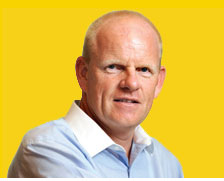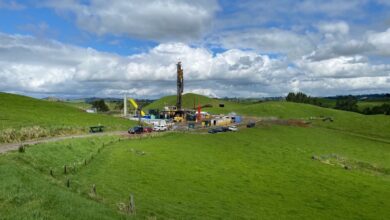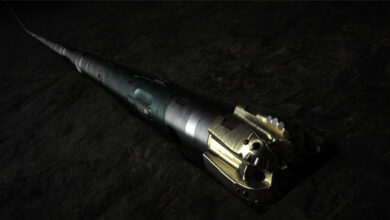Schotman: Innovation most needed in replicable, tailored solutions to well construction

By Katherine Scott, associate editor
Replication and standardization can create more space for industry to learn and innovate, Gerald Schotman, EVP, innovation, R&D and chief technology officer for Royal Dutch Shell, suggested in an exclusive interview with Drilling Contractor at the Shell Innovation Summit on 9 January in Houston. “The world is moving in two different, more segmented directions. There are big wells like the ones in the Gulf of Mexico, and then there are unconventional gas wells that can be drilled in a shorter amount of time.”
Such segmentation of oil and gas operations is calling for innovation that will bring about tailored solutions in well construction and reduce nonproductive time. “In terms of technology, we have been building wells in the same way since the 1970s,” he said. “And in the business of drilling these wells, there are too many things which wear and tear off the drill bit, resulting in too much nonproductive time. I think there is room for step-changes.”
In June 2011, Shell set up a joint venture (JV) with China National Petroleum Corporation (CNPC) to develop a highly automated well manufacturing system to significantly improve the efficiency of drilling and completing onshore wells. The project focuses on using bespoke machines to drill and complete different phases of the well in a manufacturing-like mode, according to Mr Schotman. “It’s about making rigs which can’t do everything. They can do two or three things very well and have tailored capabilities to what is needed rather than all the extras.”
Going forward, Mr Schotman believes automation will be key to improving drilling and completions because of its ability to replicate a task. “You have minimum reliance on staff from a handling, steering and design perspective. It brings the cost down, it makes things very predictable and repetitive, and it take drillers away from places where we would like to have them as minimally as possible.” Automation, too, can help industry understand the relationship between drill bit vibrations and the drill collar, thereby preventing nonproductive time, a significant challenge in drilling large deepwater wells, Mr Schotman said.
Although innovations like the well manufacturing system don’t happen overnight, Mr Schotman said he sees opportunities for breakthrough innovations in both offshore and unconventional wells. “You start with an application; it won’t be perfect but you’ll learn a lot, and if you have a replication plan, you can see the first and the second attempt as an investment,” he said. “Right now, for instance, we’re looking at how we can configure smaller and smaller wells. These things take years to develop, but we give it time. The probability that it’s ultimately successful is smaller because you’ll find all kinds of headaches as you develop the solution, but if it works, it works big.”
However, innovation is not just about the end goal, he stressed. Industry should embrace “transitional logic,” he urged, which means that for any idea to be fully realized, there has to be a period of change. For example, industry should invest in specialized new areas like unconventional gas drilling in China, where a modern infrastructure is lacking. “We should be a little more brave as an industry. It will pay off.”




